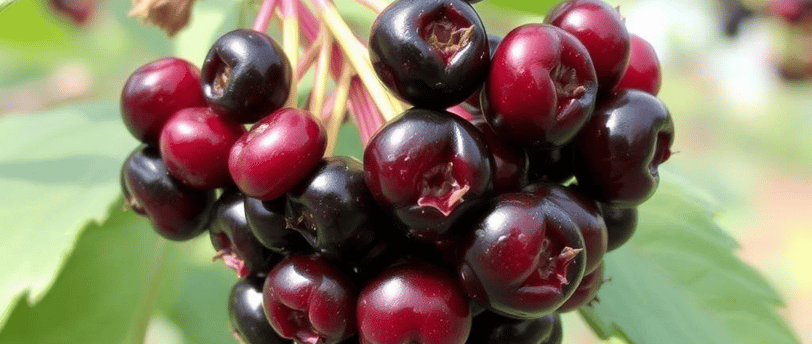Health Benefits of Elderberry: A Comprehensive Guide
HERBAL INSIGHTS


Elderberry, scientifically known as Sambucus nigra, has been used for centuries in traditional medicine for its potential health benefits. Known for its antioxidant-rich properties, elderberry has gained popularity in recent years for its role in supporting immune health, fighting illnesses, and promoting overall wellness. In this article, we’ll delve into the health benefits of elderberry, the forms available, common symptoms and causes it addresses, some delicious recipes, optimal dosage, side effect precautions, how to use it effectively, and the scientific evidence supporting its benefits.
Forms Available
Elderberry is available in various forms, making it versatile and easy to incorporate into different lifestyles. Here are the most common forms:
Syrups: One of the most widely used forms, elderberry syrup is sweetened and often used for immune support.
Capsules and Tablets: A convenient option for those who prefer measured dosages.
Tinctures: Alcohol-based extracts that deliver concentrated benefits.
Powdered Forms: Typically used for smoothies, teas, or baking.
Fresh or Dried Berries: Great for making homemade recipes like teas and jams.
Gummies: A popular choice for children or those who dislike swallowing pills.
Each form retains the potent compounds of elderberry but may cater to different preferences or health needs.
Common Symptoms and Causes Addressed by Elderberry
Elderberry is commonly associated with relief from cold and flu symptoms. Its high concentration of vitamins, antioxidants, and flavonoids makes it a natural immune booster. Some common symptoms elderberry addresses include:
Runny nose and nasal congestion.
Cough and sore throat.
Fever and body aches.
Mild bacterial or viral infections.
The causes of these symptoms are often viruses like the common cold or flu. Elderberry’s active compounds, such as anthocyanins, have demonstrated antiviral and anti-inflammatory properties, providing relief and hastening recovery.
How to Use Elderberry
Using elderberry effectively depends on the form you choose:
Elderberry Syrup: Take 1-2 teaspoons daily for general immunity. During sickness, this can be increased to 1-2 teaspoons every 3-4 hours.
Capsules or Tablets: Follow the manufacturer’s dosage recommendations, usually 1-2 capsules daily for maintenance.
Tea from Dried Berries: Steep 1 tablespoon of dried elderberries in hot water for 10-15 minutes. Drink 1-2 cups daily.
Gummies or Lozenge: Use as directed on the package, often 1-2 gummies per day.
Elderberry Recipes for Added Benefits
Incorporating elderberry into your diet can be an enjoyable experience. Here are two simple recipes:
1. Elderberry Immune-Boosting Syrup Recipe
Ingredients:
1 cup dried elderberries
4 cups water
1 cinnamon stick
1 tablespoon fresh ginger (grated)
1 cup raw honey
Instructions:
Combine dried elderberries, water, cinnamon stick, and ginger in a pot.
Bring to a boil, then reduce heat and simmer for 25-30 minutes.
Strain the mixture, allowing it to cool before adding honey.
Store in a glass jar and refrigerate for up to two months.
2. Elderberry Smoothie
Ingredients:
1 cup frozen berries (blueberries, strawberries, etc.)
1 tablespoon elderberry syrup
1 banana
1 cup almond milk or yogurt
Instructions:
Blend all ingredients until smooth.
Pour into a glass and enjoy a refreshing immune-boosting drink.
Dosage Recommendations
The appropriate elderberry dosage varies depending on the form used and the purpose of use. Here are some general guidelines:
For Preventive Use: 1 teaspoon (5 ml) of elderberry syrup daily.
For Treating Illness: Up to 4 doses of elderberry syrup (5-10 ml each) daily during the onset of symptoms.
Capsules or Extracts: 150-300 mg of elderberry extract per day for adults.
Always consult a healthcare provider for personalized dosage recommendations, especially for children, pregnant individuals, or those with underlying health conditions.
Side Effect Precautions
While elderberry is generally considered safe, certain precautions should be taken to minimize side effects:
Unripe or Raw Elderberries: These contain cyanogenic glycosides, which can cause nausea, vomiting, and diarrhea. Always purchase properly prepared elderberry products.
Pregnancy and Breastfeeding: Limited data exists on elderberry’s safety during pregnancy. Consult a healthcare provider before use.
Interaction with Medications: Elderberry could potentially interact with immunosuppressive drugs or medications for autoimmune diseases.
Scientific Evidences Supporting Elderberry Benefits
Numerous studies have validated elderberry’s health benefits:
Cold and Flu Relief: Research published in the Journal of International Medical Research (2004) revealed that elderberry extract reduced the duration of flu symptoms by an average of 4 days compared to a placebo group.
Immune-Modulating Properties: A 2016 study in Nutrients suggested that elderberry extract could enhance immune defense mechanisms, especially during acute respiratory illnesses.
Antioxidant Activity: Elderberry is rich in anthocyanins, powerful antioxidants that combat free radicals and oxidative stress.
These studies underscore elderberry's effectiveness as a natural remedy for immunity and overall health.
Conclusion and References
Elderberry is a powerhouse of antioxidants and nutrients, offering a myriad of health benefits, particularly for immune health. From its versatile forms and delightful recipes to solid scientific evidence, elderberry is a must-have addition to your wellness routine. When used correctly, it can help alleviate symptoms of colds, seasonal flu, and more. However, always take precautions and consult your healthcare provider if you have any underlying health conditions or are taking other medications.
References:
Zakay-Rones, Z., et al. (2004). "Randomized study of the efficacy and safety of oral elderberry extract in the treatment of influenza A and B." Journal of International Medical Research.
Tiralongo, E., et al. (2016). “Elderberry supplementation and its effects on immune function.” Nutrients.
Christensen, L. P., et al. (2020). “Anthocyanins and their role in combating oxidative stress.” Journal of Natural Products.
Incorporate elderberry into your life to harness its full spectrum of health benefits confidently and safely!
